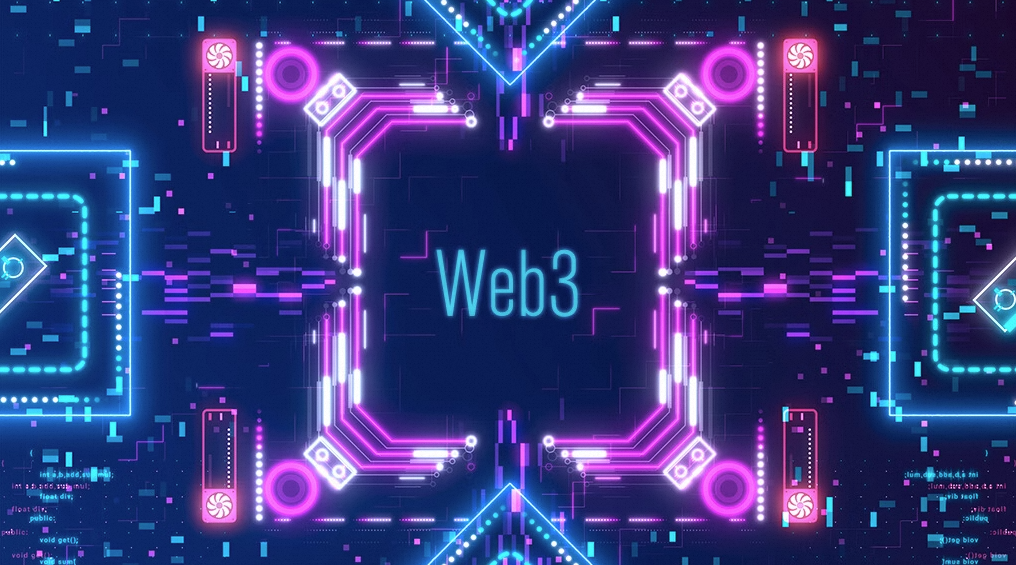Imagine a world where you own your digital identity, data, and assets and can interact with others in a secure and immersive way. That is the foundation of Web 3.0, the next evolution of the Internet, powered by blockchain, Metaverse, DeFi technologies, and so much more.
Web 3.0 is not a buzzword; it is a new reality that puts you in charge of the digital experience and unlocks new possibilities for innovation and value creation. Alibaba Cloud aims to be at the forefront of this transformation, unlocking new avenues for customers to embrace and adopt Web 3.0 technologies.

The Internet has come a long way, evolving from Web 1.0's plain approach to information retrieval to Web 2.0's collaborative approach with user-generated content and social media platforms. Today, with Web 3.0, businesses can unlock innovative technologies that revolutionize the digital landscape with greater control, privacy, and immersive experiences.
Web 3.0 brings a paradigm shift in how we interact with the Internet, unlocking a world of possibilities and transforming how we connect, create, and transact online. The Metaverse, DeFi, blockchain security, Semantic Web, and cryptocurrencies collectively shape the foundation of the Spatial web, offering users unprecedented levels of freedom, innovation, and immersion.
● The Metaverse: At the forefront of Web 3.0 is the Metaverse, a virtual reality space where users can interact, create, and engage with digital environments and each other in real-time. The Metaverse presents a boundless array of opportunities, from immersive gaming experiences to virtual meetings and e-commerce. It also enables users to express their creativity and identity through avatars, digital assets, and virtual worlds.
● DeFi: Another critical aspect of Web 3.0 is Decentralized Finance (DeFi), which leverages blockchain technology to offer secure and transparent financial services without intermediaries. DeFi allows users to benefit from innovative financial products and protocols, such as smart contracts, yield farming, and liquidity pools.
● Blockchain: Blockchain security is an integral component of Web 3.0, ensuring data integrity, privacy, and protection against fraudulent activities. With its decentralized and immutable nature, blockchain technology empowers users by eliminating their reliance on centralized entities.
● Semantic Web: The Semantic Web is yet another pillar of Web 3.0, enabling machines to understand and interpret data on the Internet. By structuring information in a way computers can comprehend, the Semantic Web enhances search accuracy, and recommendation systems, enabling seamless analysis of data from diverse sources.
● Cryptocurrencies: Cryptocurrencies enable secure and efficient peer-to-peer transactions, facilitating seamless financial interactions within the decentralized web ecosystem. Cryptocurrencies also provide users with a global and universal medium of exchange, as well as a store of value and a hedge against inflation.
One of the defining features of the Spatial Web or Web 3.0 is the decentralization of platforms, where developers can work without being bound by a particular company's policies and plans. Web 3.0 promises to give users more control over their data, as well as more immersive and personalized experiences.
Web 3.0 offers several opportunities for businesses to innovate, differentiate, and create value in the digital landscape. These include:
● Data analysis: Web 3.0 allows users to analyze their usage information, opening up new possibilities for data-driven business models, where users can benefit from their data assets, and businesses can access more diverse and reliable information sources.
● Immersive experiences: Web 3.0 introduces the concept of the Metaverse, a virtual reality space where users can interact, create, and engage with digital environments and each other in real time. The Metaverse presents a boundless array of opportunities, from immersive gaming experiences to virtual meetings and e-commerce. The Metaverse enables businesses to express their creativity and identity through avatars, digital assets, and virtual worlds.
● Interoperability and collaboration: Web 3.0 allows machines to understand and interpret data on the Internet. By structuring information in a way computers can comprehend, the Semantic Web enhances search accuracy and recommendation systems and enables seamless data integration from diverse sources.
Web 3.0 also challenges businesses to adapt to the new paradigm and overcome barriers to adoption. These include:
● Scalability: Since Web 3.0 technology is at a relatively nascent stage, scalability continues to be a challenge. User experience and performance of Web 3.0 applications are significantly impacted by the blockchain platform's transaction speed, throughput, and cost.
● Compliance: Web 3.0 technology operates in a largely unregulated or self-regulated space. Companies need to monitor the regulatory landscape and ensure they follow the best practices and standards for data protection, consumer protection, anti-money laundering, taxation, etc.
● Security: Web 3.0 technology relies on cryptography and consensus mechanisms to ensure data integrity, privacy, and protection against fraudulent activities. Businesses need to implement robust security measures and backup systems to safeguard their data and assets from hackers or malicious actors.

Preparing your business for Web 3.0 or the Spatial Web requires the adoption of intelligent technologies like AI, machine learning, NLP, blockchain, edge computing, and 5G to effectively engage with customers in a more personalized manner, streamline operations and data, and deploy and scale IoT solutions while enhancing AI/ ML capabilities. Organizations need a trusted cloud partner to integrate these technologies into the business environment and simplify and successfully optimize their Web 3.0 journey.
As the market leader in Asia's cloud services market and the Official Cloud Services Partner to the Olympic Games, Alibaba Cloud offers a range of solutions underpinned by blockchain, AI, IoT, and edge computing, helping you smoothly transition to Web 3.0. With a proven track record and a comprehensive suite of solutions, Alibaba Cloud stands ready to support businesses on their journey toward success in the ever-evolving digital landscape.
Alibaba Cloud has launched several initiatives and collaborations to support the growth of the Web 3.0 ecosystem, such as:
Web 3.0 is no longer a concept, but a new reality that empowers users and businesses. With its high-performance technology, comprehensive solutions, and commitment to innovation, Alibaba Cloud aims to help businesses succeed in this ever-evolving digital landscape.
Alibaba Slashes Carbon Footprint By 13% Through Emission-Saving Efforts

1,042 posts | 256 followers
FollowAlibaba Clouder - March 6, 2019
Iain Ferguson - January 18, 2022
Alibaba Cloud Community - September 22, 2022
Apache Flink Community - May 28, 2024
Alibaba Clouder - June 1, 2018
Alibaba Cloud Workspace - August 16, 2024

1,042 posts | 256 followers
Follow LedgerDB
LedgerDB
A ledger database that provides powerful data audit capabilities.
Learn More Metaverse Solution
Metaverse Solution
Metaverse is the next generation of the Internet.
Learn More Blockchain as a Service
Blockchain as a Service
BaaS provides an enterprise-level platform service based on leading blockchain technologies, which helps you build a trusted cloud infrastructure.
Learn More Web Hosting Solution
Web Hosting Solution
Explore Web Hosting solutions that can power your personal website or empower your online business.
Learn MoreMore Posts by Alibaba Cloud Community